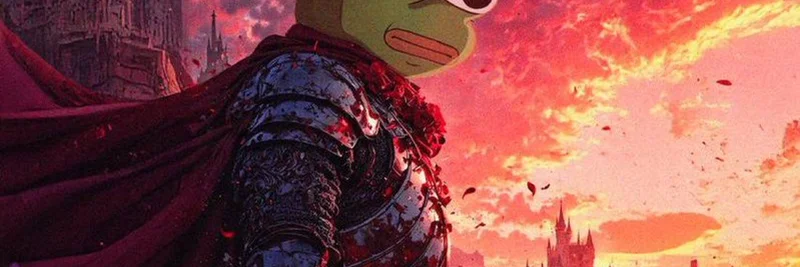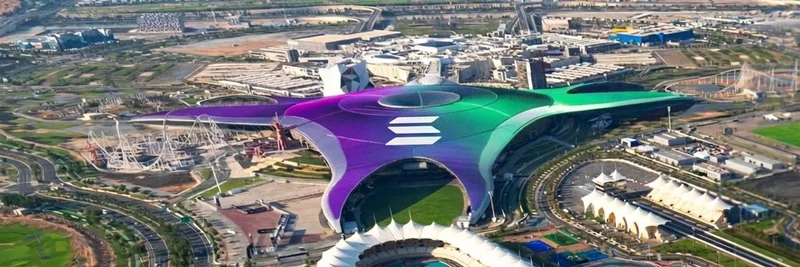Hey there, crypto enthusiasts! If you're scrolling through X (formerly Twitter) and keeping an eye on the latest blockchain buzz, you might have caught this intriguing post from BSC News. They're shouting from the rooftops about Sidra Chain, asking what makes it so special and why it's not just another blockchain in the crowded space. The tweet links to a detailed analysis on their site, and I've dug into it to bring you the lowdown in a way that's easy to digest. Whether you're a seasoned blockchain practitioner or just dipping your toes into meme tokens and beyond, understanding projects like Sidra Chain can give you an edge in the ever-evolving crypto world.
Let's start with the basics. Sidra Chain is a decentralized network that launched its mainnet in October 2023, but its roots go back to 2022. What sets it apart? It's designed specifically for Shariah-compliant financial transactions. Shariah compliance refers to adhering to Islamic principles in finance, which means no interest (known as riba), no excessive uncertainty (gharar), and steering clear of investments in prohibited sectors like gambling or alcohol (haram). In a nutshell, it's blockchain tech meets ethical finance, aiming to serve a global audience looking for morally sound financial tools.
Now, compare this to giants like Bitcoin or Ethereum. Those are general-purpose blockchains without built-in ethical frameworks. Sidra Chain, on the other hand, embeds these principles right into its core, making it a go-to for users who want their crypto activities to align with their values. It's not just talk— the platform supports real-world applications like cross-border payments, halal supply chains (ensuring products meet Islamic standards), and fundraising through profit-sharing models instead of traditional loans.
One of the coolest features is its approach to mining. Sidra Chain uses Proof-of-Work (PoW), the same consensus mechanism as Bitcoin. PoW involves miners solving complex math puzzles to validate transactions and secure the network, which keeps things decentralized and tamper-proof. But here's the twist: you can mine via a mobile app! Launched in July 2024 on Google Play, the app has racked up over a million downloads. After completing Know Your Customer (KYC) verification—a standard process to confirm your identity and comply with regulations—you can start mining Sidra Coin (SDA) right from your phone. No need for fancy, energy-guzzling hardware rigs. This democratizes mining, making it accessible to everyday folks, though some users report glitches like login issues or KYC delays.
Diving deeper into the ecosystem, Sidra Chain includes several interconnected parts. The core is the Sidra Chain Network, a blockchain forked from Ethereum (meaning it builds on Ethereum's code but customizes it). It supports smart contracts—self-executing code that automates agreements without middlemen—and integrates KYC through a tool called KYCPORT. Then there's Sidra Bank, offering digital banking services like low-fee transfers, all Shariah-compliant. SDA is the native token, used for transactions, fees, and mining rewards. With over 780 million in circulation and some burned for charity (zakat, an Islamic pillar of giving), the tokenomics are geared toward sustainability and ethical use.
What really makes Sidra Chain shine is its global expansion strategy. Through SidraClubs, they partner with local entities to handle licensing, compliance, and certifications. This includes cool initiatives like SidraStart for crowdsourcing funds for ethical startups and blockchain-based inheritance management, where assets are notarized digitally for seamless, Shariah-approved distribution.
On the tech side, being PoW-based ensures robust security, but it's energy-intensive. However, the mobile mining angle softens that blow. The platform promises lower transaction costs than Ethereum, which often suffers from high gas fees (the costs to process transactions). Tools like Sukuk (Islamic bonds backed by real assets) and Murabaha (transparent cost-plus-profit financing) are baked in, providing alternatives to conventional DeFi (decentralized finance) practices.
While Sidra Chain is still young and its scale is smaller than the big players, it's carving out a niche in Islamic markets and potentially beyond. If you're into exploring how blockchain can intersect with real-world ethics, this is one to watch. For the full scoop, check out the original tweet from BSC News or dive into their in-depth analysis.
In the fast-paced world of crypto, projects like Sidra Chain remind us that innovation isn't just about speed or memes—sometimes it's about building something meaningful. Stay tuned to Meme Insider for more insights on emerging tokens and blockchain trends that could shape the future. What do you think—could Shariah-compliant chains become the next big thing? Drop your thoughts below!


